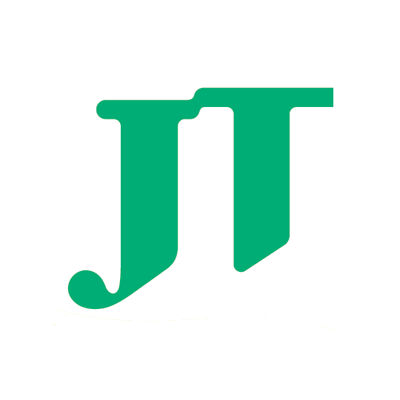预约演示
更新于:2025-08-09
Anti-HER2 monoclonal antibody-MCC-DM1 conjugate(Shanghai Jiaolian Drug Development Co. Ltd.)
重组抗HER2人源化单克隆抗体-MCC-DM1偶联剂 (上海交联药物研发)
更新于:2025-08-09
概要
基本信息
药物类型 ADC |
别名 恩美曲妥珠单抗-B003、B-003 |
作用方式 拮抗剂、抑制剂 |
作用机制 HER2拮抗剂(受体蛋白酪氨酸激酶 erbB-2拮抗剂)、微管蛋白抑制剂、ADCC(抗体依赖的细胞毒作用) |
在研适应症 |
非在研适应症 |
原研机构 |
在研机构 |
非在研机构 |
权益机构- |
最高研发阶段临床2期 |
首次获批日期- |
最高研发阶段(中国)临床2期 |
特殊审评- |
登录后查看时间轴
结构/序列
分子式C35H48ClN3O10S |
InChIKeyANZJBCHSOXCCRQ-FKUXLPTCSA-N |
CAS号139504-50-0 |
查看全部结构式(2)
使用我们的ADC技术数据为新药研发加速。
登录
或

Sequence Code 18481L

当前序列信息引自: *****
Sequence Code 44772H

当前序列信息引自: *****
关联
2
项与 重组抗HER2人源化单克隆抗体-MCC-DM1偶联剂 (上海交联药物研发) 相关的临床试验CTR20190405
B003治疗HER2阳性的转移或复发性乳腺癌患者的安全性、耐受性和药代动力学的多中心、开放、剂量递增的I期临床研究
主要研究目的:评估B003在HER2阳性的转移或复发性乳腺癌患者中的剂量限制性毒性(DLT)和最大耐受剂量(MTD); 评估B003在HER2阳性的转移或复发性乳腺癌患者中的安全性和耐受性。 次要研究目的:评估B003在HER2阳性的转移或复发性乳腺癌患者中的药代动力学特征,免疫原性,初步疗效,确定B003在后期研究中的推荐剂量。
开始日期2019-03-27 |
申办/合作机构 上海上药交联医药科技有限公司 [+1] |
JPRN-UMIN000025777
A study to evaluate the exposure to selected smoke constituents in healthy smokers using B-003 for 5 days confined in a hospital - A study to evaluate the exposure to selected smoke constituents when using B-003
开始日期2017-01-21 |
申办/合作机构 |
100 项与 重组抗HER2人源化单克隆抗体-MCC-DM1偶联剂 (上海交联药物研发) 相关的临床结果
登录后查看更多信息
100 项与 重组抗HER2人源化单克隆抗体-MCC-DM1偶联剂 (上海交联药物研发) 相关的转化医学
登录后查看更多信息
100 项与 重组抗HER2人源化单克隆抗体-MCC-DM1偶联剂 (上海交联药物研发) 相关的专利(医药)
登录后查看更多信息
616
项与 重组抗HER2人源化单克隆抗体-MCC-DM1偶联剂 (上海交联药物研发) 相关的文献(医药)2025-05-01·Biosensors & bioelectronics: X
A liquid biopsy algorithm exploiting local exosome heterogeneity
作者: Paek, Se-Hwan ; Kwon, Soonjoung ; Choi, Seung-Cheol ; Kim, Taekmin ; Kim, Jongki ; Lee, Yoon-Ho ; Choi, Dayeon ; Park, Se-Eun
We developed a novel cancer detection method that leverages changes in local exosome heterogeneity to regulate bulk-scale heterogeneity in body fluids.Using an automated, reversible isolation system and downstream immunoassays, we investigated exosome subclasses exhibiting marker composition changes associated with cancer.We introduced an index, R, to measure local heterogeneity changes, quantifying the proportion of a third marker within double-marker-pos. subclasses.This method, which employs pan-exosome tetraspanins CD9, CD63, and CD81, revealed distinct heterogeneity differences between normal and cancer samples.These differences were consistently demonstrated in exosome samples derived from various cell lines and human sera.Notably, in clin. samples, R values distributed samples from healthy donors and cancer patients into unique patterns based on the third marker within specific subclasses.However, across subclasses, R value changes were significantly smaller in healthy samples than in cancer samples.Sorting patterns were simulated using exosomes derived from immune cells, indicating an immune response contribution to the observed signals.These findings highlight the methods potential for identifying biomarkers for specific cancer diagnoses and multi-cancer screening.
2025-04-16·ACS Applied Materials & Interfaces
Redox-Responsive Cross-Linking of Polycarbonate Nanomedicines for Enhanced Stability and Controlled Drug Delivery
Article
作者: Liu, Yilin ; Fanos, Hannah E. ; Petrisor, Ashley A. ; Zhao, Bowen ; Seruya, Ronald S. ; Zhang, Xiao ; Fu, Shiwei ; Zhang, Fuwu ; Yang, Zixin
Self-assembled polymeric micelles formed from amphiphilic block copolymers offer a promising strategy for enhanced drug delivery due to their biocompatibility and controlled release. However, challenges such as their poor colloidal stability under diluted conditions and degradation during storage and circulation limit their further applications. To address these issues, we developed a straightforward method for constructing cross-linked polycarbonate micelles that enhance stability while allowing for controlled stimuli-responsive drug delivery. By utilizing disulfide-based cross-linking and covalent conjugation of the anticancer drug, our approach maintains micelle integrity and extremely high drug loading over extended periods as well as the superior control of triggered drug release compared to non-cross-linked versions, demonstrating enhanced stability in complex biological environments and improved anticancer efficacy, presenting a novel platform for stable polymer-drug conjugate nanocarriers, holding significant therapeutic potential for targeted cancer treatment.
2025-04-15·ACS Nano
Methionine-Specific Bioconjugation for Single-Molecule Force Spectroscopy of Cell Surface Proteins
Article
作者: Cao, Yi ; Zhang, Junsheng ; Li, Luofei ; Lei, Hai ; Li, Ying ; Li, Yang
Cell surface proteins play crucial roles in various cellular processes, including intercellular communication, adhesion, and immune responses. However, investigating these proteins using single-molecule force spectroscopy (SMFS) has been hindered by challenges in site-specific protein modification while preserving their native state. Here, we introduce a methionine-specific bioconjugation strategy utilizing a bespoke hypervalent iodine reagent for highly selective, rapid, and robust methionine labeling. Since methionine is often the first amino acid incorporated into proteins via initiator tRNA, this approach enables precise N-terminal labeling and attachment, facilitating more reliable SMFS studies. The resulting covalent linkage remains intact during mechanical unfolding or conformational changes of proteins, with a mechanical stability exceeding 600 pN, allowing accurate measurements before detachment from AFM cantilever tips or cell surfaces. Additionally, this method improves sampling rates and data quality. We successfully applied this technique to light-induced protein printing and natural surface protein studies, demonstrating its potential for advancing protein mechanics research in living cells. This strategy provides significant advantages for SMFS in the study of complex cellular systems.
13
项与 重组抗HER2人源化单克隆抗体-MCC-DM1偶联剂 (上海交联药物研发) 相关的新闻(医药)2024-10-17
转自:蒲公英Ouryao 整理:无忧
2024年有多家药企研发项目叫停:
跨国药企:
强生:10月15日,强生更新了Q3的研发管线,强生终止了三个神经科学领域的临床研究项目,包括:seltorexant治疗阿尔兹海默病的II期临床研究、P2X7拮抗剂治疗双相障碍(Bipolar Depression)的II期临床研究,以及另一项JNJ-0376治疗帕金森病的I期临床研究。
吉利德:2月15日,吉利德宣布已暂停在研CD47抗体药物magrolimab部分实体瘤研究的患者招募,FDA也对这些试验进行了部分临床搁置。此前,magrolimab已停止所有CD47血液瘤适应症项目,该药物在2023年7月21日宣告骨髓增生异常综合征的III期临床试验失败。
辉瑞:2024年,辉瑞公司宣布自愿从全球市场撤回其治疗镰状细胞病的药物Oxbryta,并停止所有正在进行的关于Oxbryta的临床试验和全球扩展访问计划。原因是现有临床试验数据显示Oxbryta在SCD患者群体中的临床获益不再超过风险,存在血管闭塞危象和致命事件的不平衡,需要进一步评估。
国内药企:
上海医药,12个
5月1日终止的3个项目:
i010项目:是表皮生长因子受体酪氨酸激酶抑制剂,拟用于非小细胞肺癌等恶性肿瘤的治疗,处于I期临床试验阶段,研发投入累计约为若干亿元。
b002项目:新型人用重组单克隆抗体制品,拟用于HER2阳性的转移性乳腺癌以及新辅助治疗HER2阳性乳腺癌的治疗,处于I期临床试验阶段,已投入1.3亿元左右。
b003项目:人用重组单克隆抗体与小分子药物偶联制品,拟用于HER2阳性的局部晚期或转移性乳腺癌的治疗,处于II期临床试验阶段,已投入1.4亿元左右。
6月8日终止的4个项目:
b001项目:新型人用重组单克隆抗体制品,用于CD20阳性的B细胞非霍奇金淋巴瘤的治疗,处于I期临床试验结束阶段,累计研发投入约6466.68万元。
b001-a项目:与b001完全相同,拟用于多发性硬化症的治疗,获得了临床试验批准通知书,但未开展临床,累计研发投入约593.46万元。
i022项目:化药1类小分子创新药,处于II期临床试验结束阶段。本次终止其针对乳腺癌一线治疗适应症的临床开发,针对其他适应症的临床试验及后续开发仍正常进行,涉及的研发投入约699.37万元。
i022-k项目:化药1类小分子创新药,拟用于晚期实体瘤的治疗,处于I期临床试验结束阶段,累计研发投入约3699.9万元。
10月终止的5个管线:
i020项目:是选择性抑制剂,具有抗肿瘤作用,拟用于非小细胞肺癌等恶性肿瘤的治疗,处于I期临床试验阶段,累计研发投入约人民币4145.07万元。
b006项目:新型人用重组单克隆抗体制品,拟用于间变性大细胞淋巴瘤、霍奇金淋巴瘤和皮肤T细胞淋巴瘤的治疗,处于I期临床试验阶段,累计研发投入约人民币4422.53万元。
b007项目(非霍奇金淋巴瘤适应症):新型人用重组单克隆抗体制品,原本拟用于CD20阳性的B细胞非霍奇金淋巴瘤、天疱疮以及重症肌无力的治疗,本次终止非霍奇金淋巴瘤适应症的临床试验及后续开发,该适应症累计研发投入约人民币5040.03万元。
i008项目:由中药雷公藤主要活性成分雷公藤甲素通过提纯、加工、化学结构修饰改造而获得的化合物,拟用于类风湿关节炎的治疗,处于II期临床试验阶段,累计研发投入约人民币6218.75万元。
bcd-100项目(宫颈癌适应症):重组人抗PD-1单克隆抗体,拟用于宫颈癌、非小细胞肺癌的治疗,处于III期临床试验阶段,宫颈癌适应症累计研发投入约人民币5900.80万元。
百济神州:2月26日,百济神州宣布终止与shorelinebiosciences公司一项关于异体NK细胞疗法项目的合作,于2024年第一季度生效。百济神州发言人表示,经过内部战略投资组合审查,公司决定与shorelinebiosciences终止合作关系,此次决策是百济神州内部优先事项调整的结果,并不意味着shoreline平台技术有任何不足。
华东医药:8月15日,华东医药宣布终止口服小分子GLP-1药物TTP273项目的后续研发。
亚虹医药:2月4日,亚虹医药宣布APL1202与化疗灌注联合使用治疗化疗灌注复发的中高危非肌层浸润性膀胱癌的关键性临床试验已完成,但未达到主要研究终点,公司决定终止该适应证的进一步开发。截至2023年12月31日,此临床试验累计投入约1.3亿元。不过,亚虹医药仍在推进APL1202其他适应症的临床试验。
天坛生物:1月31日,天坛生物决定终止控股子公司蓉生药业的“静注巨细胞病毒人免疫球蛋白(ph4)”III期临床试验研究及后续研发。原因是根据中国异基因造血干细胞移植后巨细胞病毒感染的预防和治疗现状,基于市场情况全面、谨慎分析,并结合公司战略规划。该公司在这个药物研发上已投入7069.09万元人民币。
亚宝药业:1月3日,亚宝药业发布公告称,经审慎考量SY-004项目继续开发的投入风险和未来市场价值,为合理配置研发资源,聚焦研发管线中的优势项目,决定暂停SY-004项目的临床研究开发工作。SY-004即盐酸亚格拉汀胶囊及原料药研发项目,适用于II型糖尿病,但临床研究未达良好预期。
再鼎医药:2023年第4季度开始,再鼎医药对部分管线进行了调整。其在2023年财报中显示,margetuximab、odronextamab和blu-945这3款药物已不在候选药物名单中。2023年第四季度,再鼎医药决定停止margetuximab和odronextamab的开发,并发出通知终止与相关公司的合作分别于2024年5月14日和2024年12月20日生效。对于终止开发的原因,再鼎医药表明是基于竞争格局的考量。
舒泰神:3月25日,舒泰神公告称,基于当前新冠疫情形势,结合年度审计工作开展,对公司研发项目进行了梳理,经审慎判断,决定终止BDB-001注射液、STSA-1002注射液、STSA-1005注射液、STSA-1002和STSA-1005联合用药项目在COVID-19适应症方向的研究工作。截至公告日,上述项目在该适应症方向研发投入共计3.83亿元。
药物研发叫停的原因,包括临床试验结果不佳、缺乏市场竞争力;资金短缺和资源分配调整;技术难题难以突破;市场因素变化导致竞争激烈,药品需求下降;监管要求提高和政策调整影响等。
参考:企业公告
临床1期临床2期
2024-10-16
一家研发投入(2024上半年14亿元)等同于信达生物的医药巨头,在2005年之后已经没有创新药获批上市了。
2005年太模糊,一代人都老去了。如果想起那年夏天万人空巷看超级女声决赛,记忆还会稍许激活。
2024H1,上海医药以1394亿元营收登顶A股医药之巅,对其考古发现,在新药研发上的失误是触目惊心的,
今年5月以来,上海医药连续终止12个新药研发项目,创下中国药企砍管线之最,近7亿元研发投入打水漂。再往前回溯,上海医药迄今仅有安柯瑞(重组人5型腺病毒)、凯力康(尤瑞克林)、培菲康(双歧杆菌三联活菌)3款创新药上市,上市时间分别为2005年、2005年、1995年。
近20年(2006年至2024年)累计研发投入超200亿元,却没有一款创新药获批上市,这是何其严重的低效和浪费。
海正药业、长春高新也有类似问题,医药国企是否有必要直接参与创新药竞争市场?依靠现金流优势和商业渠道优势,通过产业基地、产业投资基金、外部合作参与研发资源配置,是否更有效率?
上海医药2020年财报披露的创新药管线,最终获批上市的有多少?
01
砍了又砍
上一篇文章《两千亿大厂大砍管线》(2024年6月),表达过对从俄罗斯BIOCAD公司引进的PD-1单抗命运的担心,现在,大刀终于落下。
上海医药砍管线迄今共有3批。5月1日公告终止I010 (EGFR-TKI)、B002(HER2单抗)、B003(HER2 ADC)临床开发;6月8日公告终止B001(CD20单抗)、B001-A(CD20单抗)、I022(CDK4/6抑制剂)乳腺癌一线、I022-K (CDK4/6抑制剂)临床开发;10月1日公告终止5个新药研发项目。其中,最离谱的是B001-A(CD20单抗),2021年6月获批开展临床试验,之后未开展临床。
I020(MET抑制剂):拟用于NSCLC治疗,2018年5月获批开展临床试验,目前处于I期临床试验结束阶段,累计研发投入4145.07万元。
B006(CD30单抗):拟用于间变性大细胞淋巴瘤、霍奇金淋巴瘤和皮肤T细胞淋巴瘤的治疗,2018年7月获批开展临床试验,目前处于I期临床试验结束阶段,累计研发投入4422.53 万元。
B007(CD20单抗):拟用于 B细胞非霍奇金淋巴瘤的治疗,2021年1月获批开展临床试验,目前处于I期临床试验结束阶段,累计研发投入5040.03万元。其他适应症的临床试验及后续开发仍正常进行中。
I008:由中药雷公藤主要活性成分雷公藤甲素通过提纯、加工、化学结构修饰改造而获得的专利化合物,拟用于类风湿关节炎的治疗,2019年5月获批开展进一步的探索性临床试验,目前处于II期临床试验结束阶段,累计研发投入6218.75万元。I008-A项目艾滋慢性异常免疫激活适应症的临床试验及后续开发仍正常进行中。
BCD-100(PD-1单抗):拟用于宫颈癌的治疗,2021年2月获批在国内开展III期临床试验,目前处于 III 期临床试验收尾阶段,累计研发投入5900.80万元。NSCLC临床试验及后续开发仍在正常进行中。
如果上海医药这位国企老大哥有感情,对I008(雷腾舒)类风湿关节炎适应症开发终止,可能会满怀伤感吧,毕竟有15年的牵绊。2009年,上海医药首次强调研发与技术创新,自主研发新品数量位居国内医药行业领先水平,全年研发投入2.6亿元,把抗类风湿性关节炎原创药、国家1.1类化学药I008(雷腾舒)作为首批重磅推出,进入I期临床阶段,然后每有临床进展,都会在财报中披露,直到成为弃儿。
上海医药对CD20单抗有蜜汁执念,共开3条管线,自己把自己卷死。其中,B001、B007适应症均为B细胞非霍奇金淋巴瘤,前者于2016年8月获批开展临床试验,然后一直停止在I期临床阶段,估计失败但不甘心,又于2021年1月启动后者的临床试验,然后又失败了。这个靶点成药难度很大吗?迄今已有4款国产CD20靶点药物获批上市。
02
错了又错
上药老大哥竟然是国内BD鼻祖,早已开启Bigpharma与Biotech合作的先河。2011年2月,上海医药与复旦张江签订重大新药创制研发的战略合作协议,在未来6年内出资1.8亿元与复旦张江共同进行4个药物品种的研究开发和产业化全面合作,包括多替泊芬、重组高亲和力TNF受体、硫酸长春新碱脂质体(LVCR)和重组人淋巴毒素α衍生物(LT)。当时的自我评价“此次合作是上药研发转型的标志性举措,从原先以内部为主的研发组织转向开放的多渠道合作的研发模式”,放在现在也不过时。
但是这却翻出上海医药砍管线的旧账。2019年2月,上海医药终止与复旦张江合作研发的多替泊芬(累计投入5760.36万元)、重组人肿瘤坏死因子受体突变体-Fc融合蛋白注射液(累计投入6973.55万元)的临床试验。
轻车熟路。
上海医药自研的I001片(SPH3127,化学药品1类)是新一代口服非肽类小分子肾素抑制剂,针对高血压适应症的NDA上市申请根据CDE的要求于2024年4月重新提交资料后收到CDE受理通知并恢复审评,有望打破长期没有创新药上市的僵局。
但走通自研逻辑还有漫漫长路。
存量管线仍有被砍的可能。从俄罗斯引进3个生物类似药和3个创新生物药,其中创新生物药包括PD-1单抗已被砍掉,IL-17抗体产品、GITR抗体产品进度不明。
上海医药对细胞疗法也饶有兴趣,2020年已有3个项目处于临床前阶段,直到203年底仅有B019(靶向CD19和CD22的自体CAR-T)正式启动I期临床试验,累计投入研发费用约5905.17万元。前景如何,拭目以待。
2016年,47岁周军出任上海医药董事长,感叹“岁月静好的小时代结束了,沧海横流的大时代开始了”。研发投入从2015年6.18亿元,增至2020年19.72亿元,5年翻了三倍多。周军在2020年董事长致辞中充满激情:“创新,既是穿越时代的主旋律,也是引领每行乐句的最强音……预计到2021年底,我们的管线数量将进入3字头时代,并有多个项目进入临床III期。”
拼数量从来没有输过,在周军落马后,上海医药最新管线数量已进入5字头时代,2024H1研发投入14.04亿元,同比增长15.26%,占工业销售比重11.03%,临床申请获得受理及进入后续临床研究阶段的创新药管线50项(含美国临床II期3项)。
但周军拼数量的政绩观早已过时,我们都知道创新药应该立足于未满足的临床需求,差异化+国际化成为主流逻辑。
大面积砍管线,研发效率极低,这是浪费国有资源,也是对政府补贴的辜负。2011年上海医药承担的10个国家“重大新药创制”科技重大专项“十一五”计划第一、二批项目已完成技术验收,获得的国家新药创制专项产学研联盟基金、上药专项等市级科研基金到帐超过5500万元。
我们以前分析过,迄今没有任何一家国企搞创新药是成功的,国资药企的优势在于资源禀赋,包括商业流通、品牌中药,却不能很好解决创新药研发的效率、风险和激励问题。
上海医药作为医药基础设施运营商,掌控国家医药供应链的血脉,2017年成为中国最大的进口药品代理商,2018年拿下15个新药(包括K药、O药)进口总代资格,2023年引入进口总代品种29个,2024H1引入进口总代品种8个。上海医药拥有9个中药核心品牌中药板块,2023年收入98.17亿元,同比增长10.30%,生脉饮、胃复春、六神丸等品种销售收入平均增速超40%,2024H1收入51.92亿元,同比增长1.41%,而同期整个医药工业端都是下滑的。
上药生物医药产业基地作为上海生物医药创新孵化基地,在9月正式开业运营,成功吸引国家级生命健康研究院、国投产业投资母基金、上海生物医药基金等机构以及德国拜耳、循曜生物等十多家创新企业入驻。
做自己擅长的事。
财报抗体药物偶联物临床1期上市批准申请上市
2024-10-09
·药通社
2023年,有3895款候选药物退出在研管线。
进入2024年以来,基于成本控制、战略调整以及提升研发效率的需求,仍有不少国内外药企宣布公司候选药物终止开发,如普洛药业、天坛生物、拜耳、BMS、罗氏等。
近日,上海医药基于对研发项目未来市场价值、业务协同以及后续开发投入等因素的综合评估,决定终止五个研发项目的临床试验及后续开发。
这五个研发项目分别为I020、B006、B007(非霍奇金淋巴瘤适应症)、I008以及BCD-100(宫颈癌适应症)。从研发进度来看,I020、B006及B007(非霍奇金淋巴瘤适应症)处于I期临床试验阶段;I008处于II期临床试验阶段;BCD-100(宫颈癌适应症)处于III期临床试验阶段。
资料显示,I020是选择性抑制剂,具有抗肿瘤作用,拟用于非小细胞肺癌(NSCLC)等恶性肿瘤的治疗。截至目前,该项目累计研发投入共计约人民币4,145.07万元。
B006是新型人用重组单克隆抗体制品,拟用于间变性大细胞淋巴瘤、霍奇金淋巴瘤和皮肤T细胞淋巴瘤的治疗。截至目前,该项目累计研发投入共计约人民币4,422.53万元。
B007是新型人用重组单克隆抗体制品,拟用于 CD20 阳性的B细胞非霍奇金淋巴瘤、天疱疮以及重症肌无力的治疗。本次终止非霍奇金淋巴瘤适应症的临床试验及后续开发。截至目前,该适应症累计研发投入共计约人民币5,040.03万元。
I008是由中药雷公藤主要活性成分雷公藤甲素通过提纯、加工、化学结构修饰改造而获得的化合物,拟用于类风湿关节炎的治疗。截至目前,该项目累计研发投入共计约人民币6,218.75万元。
BCD-100是重组人抗PD-1单克隆抗体,拟用于宫颈癌、非小细胞肺癌的治疗。截至目前,宫颈癌适应症累计研发投入共计约人民币5,900.80万元。
根据统计,上述五个项目截至目前累计研发投入2.6亿元。随着项目被终止,意味着这些投入打了水漂。
据悉,这并非上海医药头次终止研发项目。
早先今年5月1日上海医药也曾公告,决定终止I010项目、B002项目以及B003 项目三个研发项目的临床试验及后续开发,累计投入研发3.2亿元。
6月8日其再度公告,决定终止B001、B001-A、I022(联合用药、乳腺癌一线治疗)以及 I022-K四个研发项目的临床试验及后续开发,累计投入研发1.1亿元。
据统计,三次公告终止项目累计造成损失6.9亿元。损失金额占2024年上半年净利润的比例为23.5%。对于频繁终止多个研发项目,上海医药解释,是基于对研发项目未来市场价值、业务协同以及后续开发投入等因素的综合评估。
尽管上海医药屡次终止研发项目,但是从公司的财报来看,公司的研发投入并不少。其中,财报显示,2023年上海医药研发投入金额26亿元,2024年上半年研发投入同比增长15.26%至14亿元。
投稿/内容沟通:华籍美人(Ww_150525)
近期精华文章
临床1期临床3期临床2期
100 项与 重组抗HER2人源化单克隆抗体-MCC-DM1偶联剂 (上海交联药物研发) 相关的药物交易
登录后查看更多信息
研发状态
10 条进展最快的记录, 后查看更多信息
登录
| 适应症 | 最高研发状态 | 国家/地区 | 公司 | 日期 |
|---|---|---|---|---|
| 乳腺癌 | 临床2期 | 中国 | 2022-11-16 | |
| 乳腺癌 | 临床2期 | 中国 | 2022-11-16 | |
| HER2阳性乳腺癌 | 临床1期 | 中国 | 2019-03-27 | |
| HER2阳性乳腺癌 | 临床1期 | 中国 | 2019-03-27 |
登录后查看更多信息
临床结果
临床结果
适应症
分期
评价
查看全部结果
| 研究 | 分期 | 人群特征 | 评价人数 | 分组 | 结果 | 评价 | 发布日期 |
|---|
No Data | |||||||
登录后查看更多信息
转化医学
使用我们的转化医学数据加速您的研究。
登录
或

药物交易
使用我们的药物交易数据加速您的研究。
登录
或

核心专利
使用我们的核心专利数据促进您的研究。
登录
或

临床分析
紧跟全球注册中心的最新临床试验。
登录
或

批准
利用最新的监管批准信息加速您的研究。
登录
或

生物类似药
生物类似药在不同国家/地区的竞争态势。请注意临床1/2期并入临床2期,临床2/3期并入临床3期
登录
或

特殊审评
只需点击几下即可了解关键药物信息。
登录
或

Eureka LS:
全新生物医药AI Agent 覆盖科研全链路,让突破性发现快人一步
立即开始免费试用!
智慧芽新药情报库是智慧芽专为生命科学人士构建的基于AI的创新药情报平台,助您全方位提升您的研发与决策效率。
立即开始数据试用!
智慧芽新药库数据也通过智慧芽数据服务平台,以API或者数据包形式对外开放,助您更加充分利用智慧芽新药情报信息。
生物序列数据库
生物药研发创新
免费使用
化学结构数据库
小分子化药研发创新
免费使用

